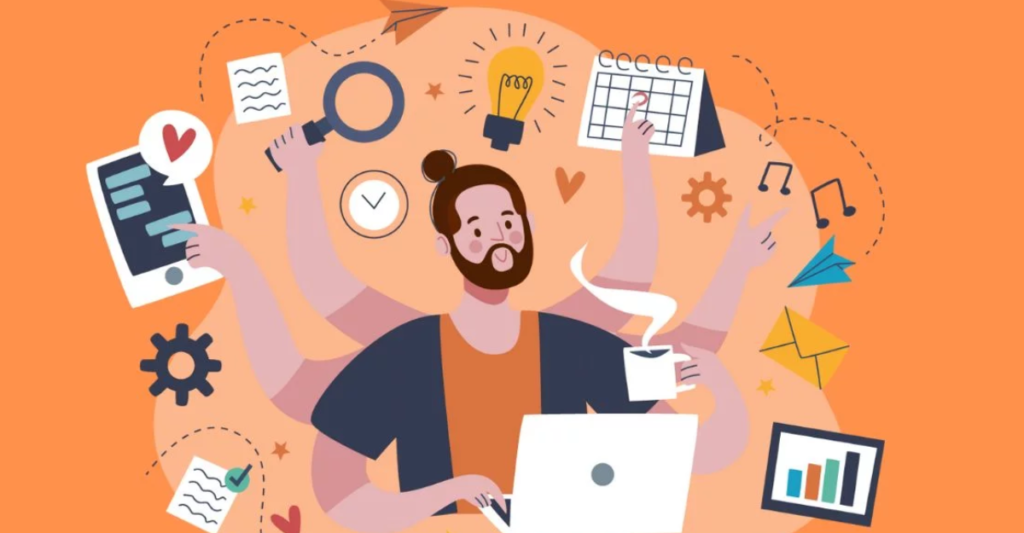Work-Life Balance: Your Comprehensive Guide to Managing Career and Well-Being
- 137 Views
- Rupali
- March 14, 2024
- Career Development Advice
Understanding the Importance of Work-Life Balance
Work-life balance is a term that has gained significant attention in recent years, and for good reason. In today’s fast-paced and demanding world, finding a balance between work responsibilities and personal life has become crucial for overall well-being.
The benefits of maintaining a healthy work-life balance are numerous. It not only enhances productivity and job satisfaction but also plays a vital role in preserving mental and physical health. Research has shown that individuals who prioritize work-life balance experience reduced stress levels, improved focus, and better overall health outcomes.
Understanding why work-life balance matters goes beyond just achieving success in the workplace. It is about creating harmony between professional commitments and personal fulfillment. By prioritizing time for relaxation, hobbies, family, and self-care, individuals can lead more fulfilling lives while still excelling in their careers.
In the following sections, we will delve deeper into the impact of work-life balance on health, explore the benefits it offers, and discuss practical strategies to achieve a harmonious equilibrium between work and personal life.

Tips for Improving Work-Life Balance and Achieving Harmony in Your Life
Achieving a healthy work-life balance is essential for overall well-being and productivity. Here are some effective tips to help you find harmony in your life:
1. Set Boundaries: Establish clear boundaries between work and personal time. Define specific working hours and stick to them to prevent work from encroaching on your personal life.
2. Prioritize Tasks: Make a daily or weekly plan outlining your tasks and priorities. Focus on completing important tasks first to avoid feeling overwhelmed by a long to-do list.
3. Delegate Responsibilities: Learn to delegate tasks at work and home when possible. Delegating can help reduce stress and free up time for activities that bring you joy.
4. Take Breaks: Schedule regular breaks throughout your workday to recharge and avoid burnout. Stepping away from your desk can improve focus and productivity when you return.
5. Practice Self-Care: Make time for self-care activities such as exercise, meditation, hobbies, or spending time with loved ones. Taking care of yourself is crucial for maintaining a healthy work-life balance.
6. Limit Screen Time: Reduce screen time outside of work hours to disconnect from technology and focus on relaxation or quality time with family and friends.
7. Communicate Effectively: Clearly communicate your boundaries and needs with colleagues, supervisors, and family members. Effective communication can help others understand the importance of your work-life balance.
8. Learn to Say No: Be selective about taking on additional responsibilities or commitments that may interfere with your work-life balance goals. It’s okay to say no when necessary.
By implementing these strategies, you can improve your work-life balance, reduce stress, and create a more harmonious life that supports both your career goals and personal well-being.
Common Work-Life Balance Problems and Effective Solutions
Work-life balance is a crucial aspect of overall well-being, yet many individuals face challenges in achieving harmony between their professional and personal lives. One common work-life balance problem is the inability to disconnect from work, leading to burnout and increased stress levels.
Another challenge is the blurring of boundaries between work and personal life, especially with the rise of remote work. This can result in feelings of being constantly on call and difficulty in switching off from work mode.
To address these issues, it’s important to establish clear boundaries between work hours and personal time. Setting specific times for work tasks and leisure activities can help create a sense of structure and ensure that both aspects of life receive adequate attention.
Additionally, practicing self-care techniques such as mindfulness, regular exercise, and spending quality time with loved ones can contribute to maintaining a healthy work-life balance. It’s essential to prioritize activities that promote relaxation and rejuvenation outside of work commitments.
Employers also play a significant role in supporting their employees’ well-being by promoting flexible working arrangements, encouraging breaks during the workday, and fostering a culture that values downtime. By implementing policies that prioritize employee wellness, organizations can contribute to creating a more harmonious work environment.
In conclusion, addressing common work-life balance problems requires a combination of individual efforts in setting boundaries and prioritizing self-care practices, along with organizational support in creating conducive working conditions. By recognizing the importance of maintaining equilibrium between professional responsibilities and personal life, individuals can strive towards achieving a healthier and more fulfilling lifestyle.
The Benefits of Achieving a Healthy Work-Life Balance for Your Career and Well-Being
Achieving a healthy work-life balance is essential for both your career and overall well-being. By effectively managing your time between work and personal life, you can experience numerous benefits that positively impact your productivity, job satisfaction, and mental health.
One of the key advantages of maintaining a healthy work-life balance is increased productivity. When you take the time to recharge and focus on activities outside of work, you return to your job feeling refreshed and more motivated. This renewed energy allows you to approach tasks with a clear mind and higher efficiency, ultimately leading to better performance at work.
Balancing your career with personal life also has significant positive effects on your well-being. By prioritizing time for relaxation, hobbies, exercise, or spending quality moments with loved ones, you reduce stress levels and prevent burnout. A balanced lifestyle contributes to improved mental health, lower anxiety levels, and an overall sense of fulfillment.
Furthermore, achieving a healthy work-life balance enables you to maintain better relationships with colleagues and loved ones. When you feel content in both aspects of your life, it reflects positively on your interactions with others. Stronger relationships foster collaboration at work, enhance communication skills, and create a supportive network that boosts morale during challenging times.
In conclusion, the benefits of balancing your career with personal life are multifaceted. From increased productivity and job satisfaction to improved mental health and stronger relationships – prioritizing a healthy work-life balance is not only beneficial for your career growth but also crucial for nurturing overall well-being.

Incorporating Self-Care Practices into Your Routine to Enhance Work-Life Balance
Incorporating self-care practices into your routine is essential for maintaining a healthy work-life balance, especially for busy professionals. By prioritizing self-care, you can enhance your overall well-being and productivity.
Start by setting aside time each day for self-care activities that recharge and rejuvenate you. This could include mindfulness exercises, meditation, yoga, or simply taking a walk in nature. Finding what works best for you is key to establishing a sustainable self-care routine.
Additionally, make sure to prioritize adequate sleep and nutrition to fuel your body and mind. Getting enough rest and eating well-balanced meals can significantly impact your energy levels and mood throughout the day.
Remember that self-care is not selfish; it is necessary for maintaining a balanced life. By incorporating these practices into your daily routine, you can improve your overall well-being and achieve greater success in both your personal and professional life.
Categories
- Blog
- Career and Education
- Career Development Advice
- DIY Projects
- Fashion and Beauty
- Fashion Trends
- Food and Cooking
- Food Trends
- Health and Wellness
- Home and Decor
- Home Organization Tips
- Interior Design Ideas
- Lifestyle
- Personal Development
- Productivity Tips
- Recipes and Cooking Tips
- Restaurant Reviews
- Self-Care and Mental Health
- Skincare and Beauty Tips
- Tech News and Trends
- Technology
- Travel
- Travel Tips and Hacks
Popular Tags
5 areas of personal development 5 benefits of self-care 5 ways to increase productivity 2024 fashion trends streetwear 2024 fashion trends woman Career career development plan cooking skills Daily skin care routine at home Digital Trends fashion trend forecast 2024 vogue Fashion trends 2024 fashion trends 2024 spring/summer fashion trends for women Food Trends Health and Wellness Healthy skin tips for face Home Organization Hacks https://wefocuseducom.com/ inexpensive home organization ideas Interior design ideas living room latest information technology trends Latest trends in fashion for ladies Lifestyle Lifestyle for Wellness list of careers in education mental health mental health awareness personal development examples positive mindset positive restaurant reviews (examples) practicing mindfulness productivity tips Self-Care Self-Care and Mental Health self-care tips for mental health spring/summer 2024 fashion trends women's technology time management skills Top 10 tips to maintain your mental health top new technologies Tried-and-Tested Recipes what are 5 careers in education what are the 3 aspects of personal development? What is self-care

